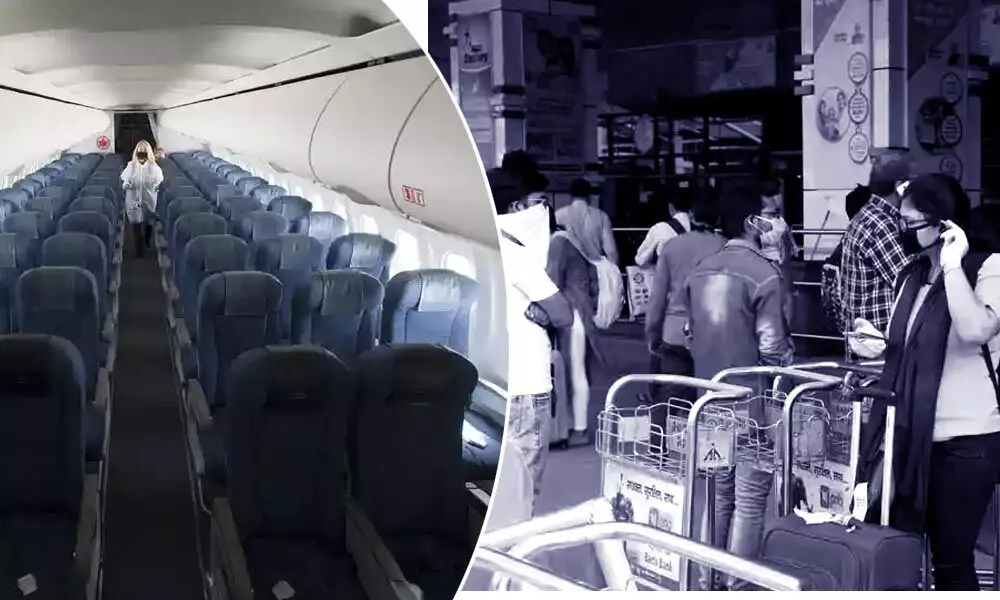Covid 2nd wave: Travel restrictions may spell more trouble to aviation sector
While there is public support for travel restrictions, it is becoming clear that people are feeling more comfortable with managing the risks of Covid-19.
image for illustrative purpose

While there is public support for travel restrictions, it is becoming clear that people are feeling more comfortable with managing the risks of Covid-19.
People are also feeling frustrated with the loss of freedom to travel, with many indicating their quality of life is suffering as a result. Travel restrictions come with health, social and economic consequences. Quite a few are feeling mental stress and missing an important human moment as a result of travel restrictions. And there are many who feel that restrictions prevent them from doing business normally.
"The top priority of everybody at the moment is staying safe amid the Covid-19 crisis. But it is important that we map a way to being able to re-open borders, manage risks and enable people to get on with their lives. That includes the freedom to travel. It is becoming clear that we will need to learn to live and travel in a world that has Covid-19.
People want to get back to travel, but quarantine is the showstopper. As testing capacity and technology improves and the vaccinated population grows, the conditions for removing quarantine measures are being created. And this points us again towards working with governments for a well-planned re-opening as soon as conditions allow.
Airlines will not be cash positive by Q4 this year, according to a revised assessment from IATA. The association predicts carriers will burn between $75 and $95 billion this year as new Covid-19 variants contribute to tightened travel restrictions ahead of the peak northern summer travel season. IATA recommends that governments lay out reopening plans that airlines can reference, that health passports become widely used and global standards regarding vaccination records are adopted.
IATA if now forecasting airline traffic will be roughly half the levels seen in 2019 as national lockdowns take hold and with the likelihood of an only gradual return to normal as recession compounds the health crisis.
Against this backdrop and with limited cash resources remaining, airlines, regulators and governments have to look at unprecedented moves to keep the industry afloat during a sustained grounding. But the challenges and responses differ across airlines and markets.
The immediate impact of a second wave in India would be on passenger confidence, with many opting not to fly if cases surge across the country. No Indian airline offers blocked middle seats but most do sell the middle seat at a lower price. A second wave could halt any further growth of domestic travellers and even increase cancellations.
Even with a vaccine that may bring back air travel around the corner, carriers face a desperate few months. The number of airlines collapsing or entering administration is likely to reach 70 through March, according to consultant IBA Group, while IATA doesn't expect passenger traffic to return to pre-pandemic levels until 2024.

